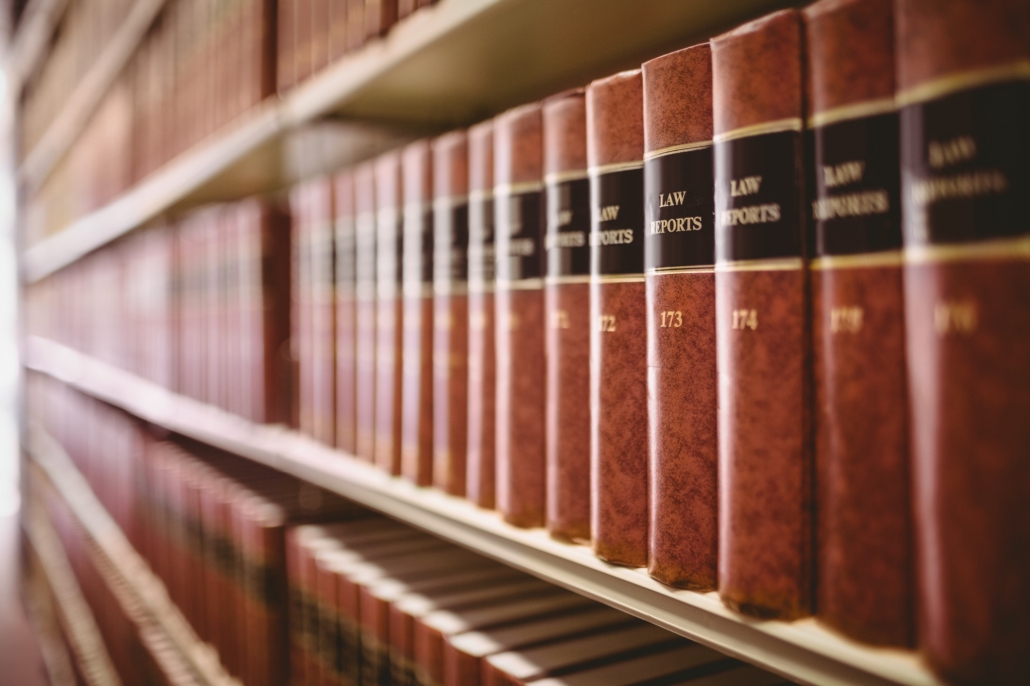Action dismissed as “currently unfounded”
/in Nicht kategorisiertLEGAL+ NEWS
Especially in construction law disputes, it is not uncommon for a claim to be dismissed as “currently unfounded”. This often concerns the due date of remuneration claims, for example, because acceptance as a prerequisite for the due date is questionable. In these cases, there are often judgments that dismiss a claim as currently unfounded.
The BGH recently stated in detail that in such cases the res judicata effect of the dismissing judgment also includes the grounds for the judgment, insofar as the other – i.e. the currently not missing – claim requirements have been positively established or affirmed.

BGH on the res judicata effect of a dismissal of an action as currently unfounded
In its ruling of December 9, 2022 (case no. V ZR 72/21), the BGH stated the reasons for this:
“(…)
It has been clarified in supreme court case law that if an action for payment is dismissed as currently unfounded pursuant to Section 322 (1) ZPO, the fact that the plaintiff had no claim due for payment against the defendant up to the time of the last oral hearing becomes res judicata (cf. Senate, judgment of October 6, 1989 – V ZR 263/86, WM 1989, 1897, 1898; BGH, judgment of July 28, 2011 – VII ZR 180/10, NJW-RR 2011, 1528 para. 12; decision of January 23, 2014 – VII ZB 49/13, NJW 2014, 1306 para. 11).
(…)
The extent to which a dismissal of an action as currently unfounded can also have a “positive” res judicata effect in addition to this “negative” res judicata effect to the detriment of the plaintiff, to the effect that the existence of certain conditions of the claim is established in favor of the plaintiff, has been disputed to date.
(…)
This question was answered in the affirmative by the Third Civil Senate in a decision handed down after the judgment of the Court of Appeal in a case in which an official liability claim against a notary (Section 19 (1) sentence 1 BNotO) had been comprehensively examined in preliminary proceedings and then dismissed solely due to the existence of another possibility of compensation (see judgment of June 9, 2022 – III ZR 24/21, NJW 2022, 2754 marginal no. 17 et seq. with extensive evidence on the status of the dispute ). Accordingly, the res judicata effect of a judgment dismissing the claim as currently unfounded also extends to the fact that the conditions of the claim are otherwise fulfilled if and to the extent that these have been affirmed or positively established in the grounds of the decision. In order to determine the scope of res judicata, the facts of the case and the reasons for the decision must be used in addition in the case of judgments dismissing the action.
(…)
The V. Civil Senate agrees with the convincing argumentation of the III. Civil Senate and also considers it relevant in this constellation.
However, the entire content of the judgment does not become res judicata. Rather, res judicata is limited to the legal consequence that forms the sentence of the decision, which the court has derived from the facts of the case by subsuming them under objective law. However, in the case of a decision dismissing an action, the decisive reason for the dismissal, which is to be determined from the grounds and determines the legal consequence, is part of the final judgment and not solely an element of the grounds for the judgment.
(…)
If the court in the preliminary proceedings, in which the defendant applies for the unlimited dismissal of the action, affirms the conditions of the asserted claim with the exception of the occurrence of conditions precedent, the affirmation of the conditions of the claim is not merely an element of the grounds for the judgment and a preliminary question, but, measured against the defendant’s legal protection objective, a decisive reason for dismissal. The defendant, who is seeking an unlimited dismissal of the action, is adversely affected due to his further legal protection objective, insofar as (only) a dismissal as currently unfounded is made.
(…)
He can therefore – at least by means of an appeal – obtain a judicial review of the extent to which the asserted claim should be rejected without restriction because it does not ultimately exist.
(…)
However, it is then logical that the affirmation of the conditions for entitlement has a “positive” effect in favor of the plaintiff. This result is also convincing because otherwise, in subsequent proceedings, the plaintiff might be forced to prove the already examined and affirmed conditions of entitlement again. The defendant could therefore, by contesting the claim again, ensure that a comprehensive examination of the same claim prerequisites takes place both in the preliminary proceedings and in the subsequent proceedings. Such a result would be nonsensical from a procedural point of view because it would devalue the results of the previous proceedings…”
Assessment of this view on the dismissal of the action as “currently unfounded”
The ruling is to be welcomed in principle, as it would indeed be nonsensical to have to re-examine previously examined and affirmed eligibility requirements in subsequent proceedings.
However, caution is advised for those affected by such constellations insofar as this case law also harbors pitfalls – at least if the principles listed are extended to every conceivable case of a claim being dismissed as “currently unfounded” due to the absence of an individual claim requirement. An example of this is the case in which the plaintiff appeals against such a judgment with the aim that the court of appeal also affirms the missing requirement for a claim and thus upholds the action. Strictly speaking, the appellate court’s review jurisdiction would then be limited to the question of the existence of this individual due date requirement. The other conditions of entitlement affirmed by the court of first instance do not constitute a complaint by the plaintiff filing the appeal. In order for the court of appeal (in favor of the defendant of the first instance) to also review the other conditions of entitlement, the defendant would have to file a cross-appeal.


LATEST ARTICLES

“Handelsblatt” report from March 15/16/17, 2019 confirms the questionable nature of the action taken by the Association of Social Competition (VSW) against influencers
LEGAL+ NEWS “Handelsblatt” report from March 15/16/17, 2019 confirms the

Conditions of carriage for letters: Liability of Swiss Post for the loss of a registered letter
The question of liability for registered mail sent by Deutsche Post is becoming increasingly important, as in the real world of amazon, ebay & Co. goods are increasingly being sent as e.g. registered maxi letters. This is when the question of whether and, if so, to what extent liability on the part of the postal service can be considered comes into play. This is the subject of the following article.

Guide: Judge biased? The application for bias according to § 42 ZPO
Anyone who has ever been forced to seek legal assistance to enforce or defend against claims knows that being right and getting right are different things. It is not uncommon, and this experience is (unfortunately) also familiar to many of those affected, for the court proceedings to be accompanied by the impression that the judge responsible for the decision was not neutral and therefore possibly biased. If this partiality is to one’s own detriment, the question arises as to whether there are options for action in such cases. The following remarks deal with this question.
CONTACT

+49 (40) 57199 74 80
+49 (170) 1203 74 0
Neuer Wall 61 D-20354 Hamburg
kontakt@legal-plus.eu
Benefit from my active network!
I look forward to our networking.
This post is also available in: DE


